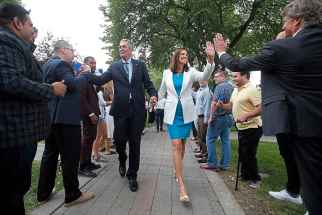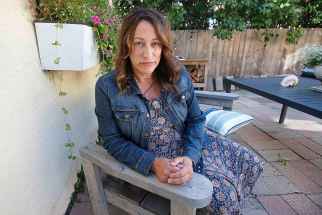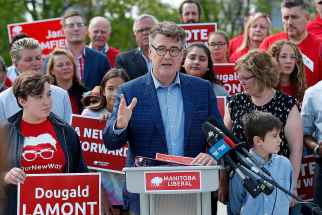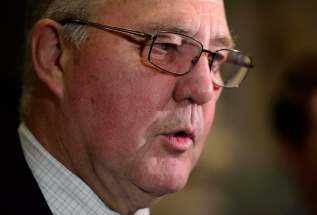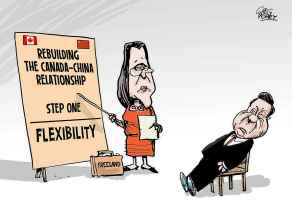Five Indigenous issues in the Manitoba election campaign
Read this article for free:
or
Already have an account? Log in here »
To continue reading, please subscribe:
Monthly Digital Subscription
$0 for the first 4 weeks*
- Enjoy unlimited reading on winnipegfreepress.com
- Read the E-Edition, our digital replica newspaper
- Access News Break, our award-winning app
- Play interactive puzzles
*No charge for 4 weeks then price increases to the regular rate of $19.00 plus GST every four weeks. Offer available to new and qualified returning subscribers only. Cancel any time.
Monthly Digital Subscription
$4.75/week*
- Enjoy unlimited reading on winnipegfreepress.com
- Read the E-Edition, our digital replica newspaper
- Access News Break, our award-winning app
- Play interactive puzzles
*Billed as $19 plus GST every four weeks. Cancel any time.
To continue reading, please subscribe:
Add Free Press access to your Brandon Sun subscription for only an additional
$1 for the first 4 weeks*
*Your next subscription payment will increase by $1.00 and you will be charged $16.99 plus GST for four weeks. After four weeks, your payment will increase to $23.99 plus GST every four weeks.
Read unlimited articles for free today:
or
Already have an account? Log in here »
Hey there, time traveller!
This article was published 13/08/2019 (2312 days ago), so information in it may no longer be current.
On Aug. 1, the Assembly of Manitoba Chiefs voted to endorse — for the first time in its history — a party in a provincial election campaign. The AMC elected to support Wab Kinew’s NDP.
What will happen if Brian Pallister’s Progressive Conservatives return to government next month is anyone’s guess, but history shows the Manitoba premier has a tendency to “even the score” with perceived slights.
Still, the stakes are high for Indigenous peoples this provincial election. Not since 1870, when Louis Riel’s Métis-led provisional government drove the agenda, have Indigenous issues been so central in a Manitoba election campaign.
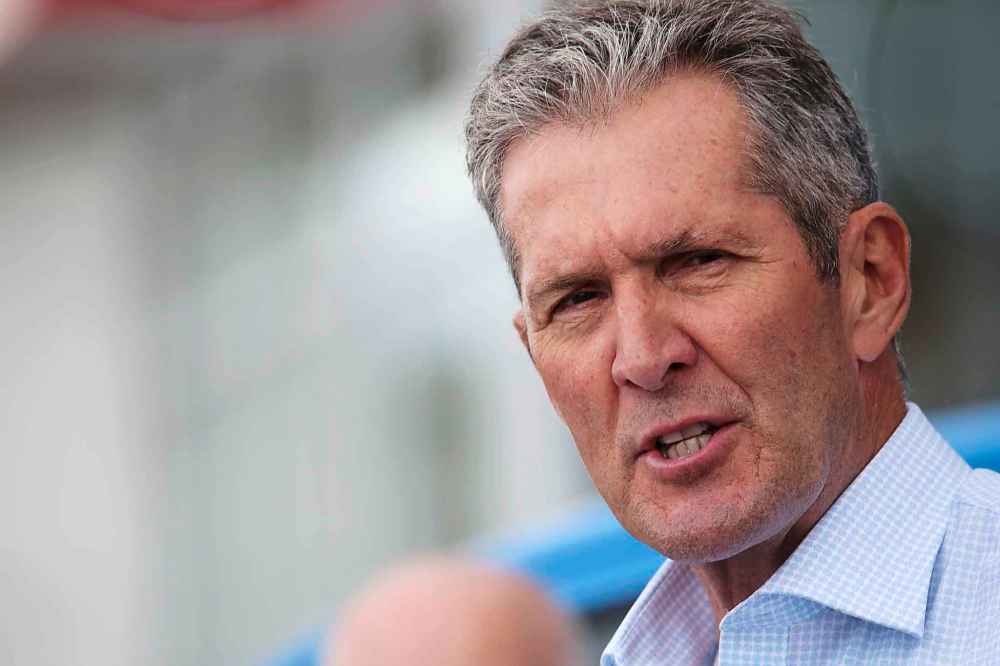
Approximately 17 per cent of Manitoba’s 1.3 million citizens are Indigenous, representing more than 200,000 people. Of this, about 100,000 are eligible voters – with a dozen of Manitoba’s 57 ridings having significant, impactful Indigenous voter-age populations.
This has prompted an unprecedented number of Indigenous candidates.
In the 2016 provincial election, 18 Indigenous candidates ran for the NDP, Liberal and Progressive Conservative parties, up from three in 2011. This number has already been eclipsed, with some of the parties still choosing candidates.
It used to be political parties didn’t have to mention Indigenous peoples, never mind present policies designed to address Indigenous communities.
Those days are gone. Even if you’re not Indigenous, every single Manitoban works with, lives beside, or is related to an Indigenous person. This means Indigenous issues are everyone’s issues.
It used to be political parties didn’t have to mention Indigenous peoples, never mind present policies designed to address Indigenous communities.
So, for all of us, here are the top five Indigenous issues in this provincial election. I’ll save for later what the parties are doing to address them.
Poverty: Indigenous poverty is at an all-time high, with employment, health, and education rates all impacted as a result. Poverty is the primary reason why there are more Indigenous children in the child welfare system, Indigenous young men are jailed disproportionately, and young Indigenous women experience violence more then anyone else. Arguably, this is due to federal poilicies such as the Indian Act, but provinces like Manitoba inherit the legacies.
Provincial governments have historically chosen one of two paths to deal with Indigenous poverty — fund Indigenous business development or only deal with the after-effects by constructing jails, funding healing facilities and building more shelters. These solutions are like giving Tylenol to someone chronically sick, but never dealing with the cause of the illness.
The solution? Help build strong Indigenous families, provide opportunities, and support Indigenous nations in creating their own economic initiatives such as those in Winnipeg’s urban reserves or programs such as the Winnipeg Aboriginal Sport Achievement Centre. Any provincial party that can propose Indigenous-led solutions like these will find Indigenous voters on its side.
Health: It’s no secret health care is the central issue of this election campaign. What’s little known is that in the midst of cuts to Winnipeg’s hospitals and emergency rooms have come the end of critical programs in Indigenous health including at Misericordia hospital. Cuts to health care have also impacted Indigenous seniors such as those at the North End’s Kekinan Centre, who are heavily neglected and at serious security risk.
And, there continues to be a problem with racism in Manitoba’s health-care system. In 2018, professors Mary Jane McCallum and Adele Perry released the book Structures of Indifference: An Indigenous Life and Death in a Canadian City, which showed that most of the attitudes and policies that led to the 2008 ER death of Brian Sinclair, an Indigenous man who died in his wheelchair after being ignored by Health Sciences Centre staff for more than a day, have still not been addressed.
Child welfare: Federal legislation has mandated First Nations take control of the care of Indigenous children. With the huge amount of Indigenous children in agencies throughout the province, Manitoba has an opportunity to empower relationships with First Nations during this handover or add to already under-funded and overwhelmed agencies.
Poverty is one of the most critical Indigenous issues in our province, but so too is child welfare. The party that can come up a vision for how this future handover of child welfare in Manitoba can happen with the needs and and safety of children at the centre will find plenty of support.
Environment: Much has been written about Indigenous concerns about the health of Lake Winnipeg but less has been spoken about the ongoing conflict with the water channel redirections at Lake St. Martin and Lake Manitoba First Nations. These communities still have deep concerns over the lack of consultations and the impacts of these diversions on wildlife and the environment.
Reconciliation: In the waning days of the previous NDP government in 2016, the party passed the Path to Reconciliation Act, which proposed, among other things, a yearly report on Manitoba’s progress on the Truth and Reconciliation Commission’s 94 calls to action and other initiatives building Indigenous and non-Indigenous relationships in Manitoba.
Since then, the Manitoba Progressive Conservative government has been embroiled in an ongoing battle over land agreements with the Manitoba Métis Federation, fights with First Nations chiefs over promises for casinos, and Manitoba’s premier has made several comments stoking racial conflict. His comments include “young Indigenous men – a preponderance of them offenders, with criminal records – are going off shooting guns in the middle of the night” or “I’ve had confrontational situations, as a six-foot-eight man” in downtown Winnipeg. So, um, where’s the Path to Reconciliation report?
Regardless of what party rules Manitoba after Sept. 10, reconciliation remains a far-off place.
Here’s hoping this provincial election leads to more, not fewer, visions for all of our communities’ futures.

Niigaan Sinclair is Anishinaabe and is a columnist at the Winnipeg Free Press.
Our newsroom depends on a growing audience of readers to power our journalism. If you are not a paid reader, please consider becoming a subscriber.
Our newsroom depends on its audience of readers to power our journalism. Thank you for your support.


